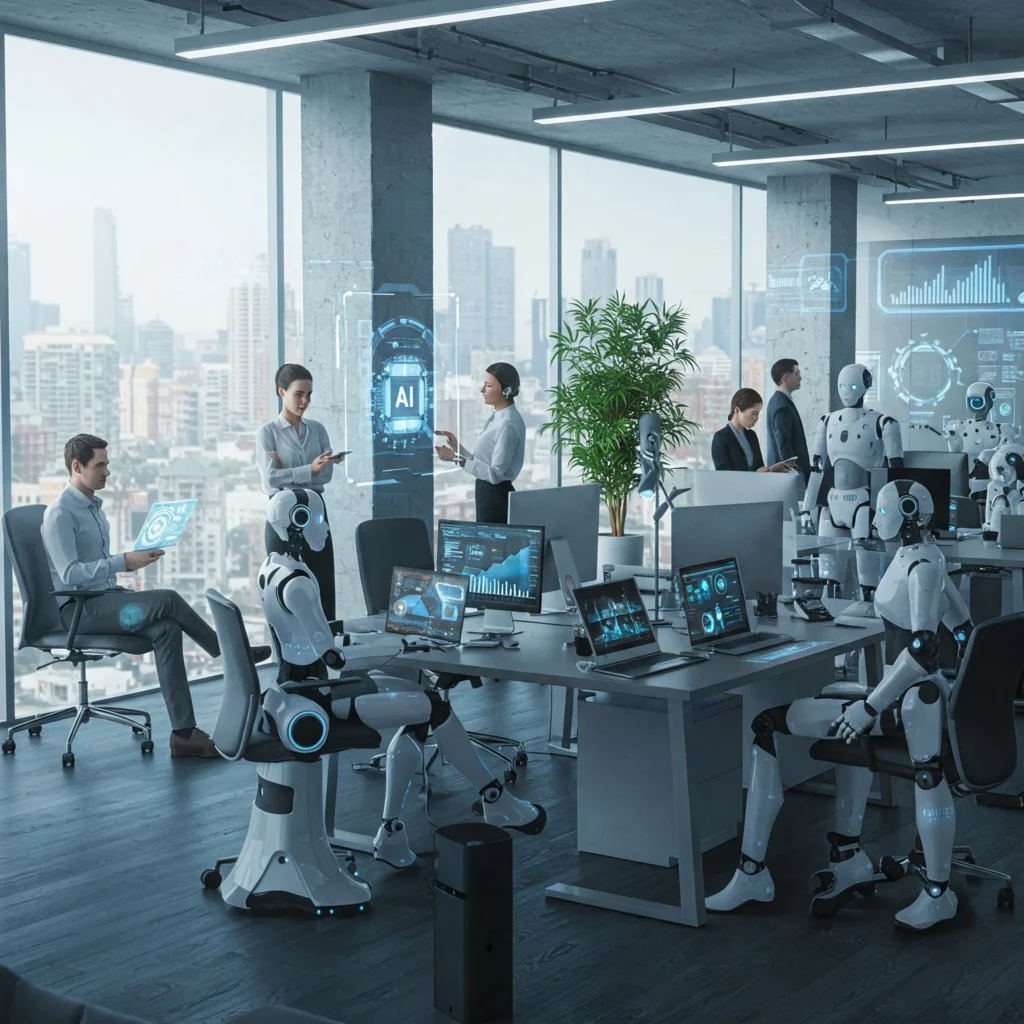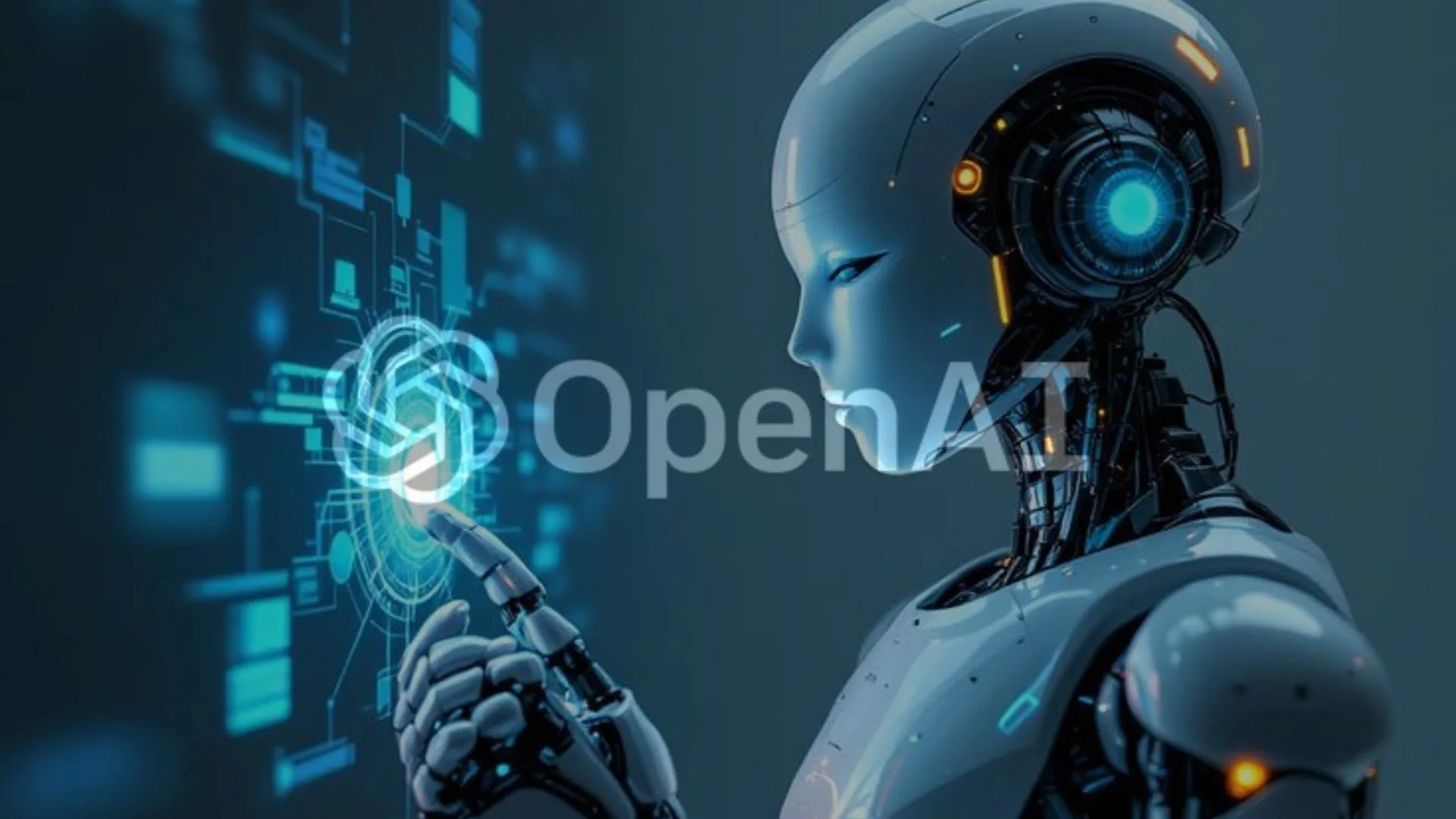Introduction
We are entering a new era in the world of artificial intelligence. OpenAI’s latest tool, Deep Research, could radically change the way white collar workers do their jobs. So, what exactly does this AI agent do, and why is it such a big deal? The new face of research.
What is deep research?

Deep research is an AI agent developed by OpenAI that can conduct independent research on the Internet.
It autonomously browses the web, clicks on relevant links, analyzes data, and creates in-depth reports.
And it does all of this at a level of detail and speed that would take a human hour to prepare.
OpenAI researcher ISA Fulford explains the success of deep research.
Even during internal tests, it caught the attention of our team.
Everyone wanted to use the tool. OpenAI CEO Sam Altman shares his thoughts on the future of this technology.
Deep research is one of the clearest examples of how AI will revolutionize the business world.
Companies can now radically accelerate their research processes.
In fact, as AI technologies continue to develop, experts believe that tools like deep research may not only support research tasks but could also replace human researchers in some cases.
AI’s Disruption of Traditional Research
AI expert Suleiman predicts deep research will disrupt traditional methods. It offers faster, more accurate results with fewer errors.
This is the breakthrough we’ve been waiting for. How does it work? Deep research creates a plan on a topic provided by the user and begins browsing the web.
It evaluates the information it finds, selects the trustworthy sources, discards irrelevant links, and ultimately provides a comprehensive report.
Here’s an example. Let’s say you ask it to prepare a report on the health insurance sector in Massachusetts.
Deep research first identifies the most current sources, then examines new sites, academic papers, and reliable analyses.
It uses its own logic to determine which information is most valuable and provides you with a detailed report as a result.
Mustafa Suleiman elaborated on this process, stating deep research doesn’t just scrape the Internet for information.
It understands context, evaluates the quality of sources, and creates an intelligently synthesized report.
It’s like having a research assistant with deep domain expertise.
The Promise and the Pitfalls: Exploring the Capabilities and Limitations of Deep Research.
However, despite its advanced capabilities, deep research still faces challenges with bias in data selection and difficulty interpreting complex nuances in human language.
Researchers at Stanford University have pointed out that while AI’s ability to sift through vast amounts of data is impressive, there is still room for improvement in how it makes sense of ambiguous or contradictory information.
A revolution in the business world, Deep research signals a major shift for white collar workers.
Many companies believe that such AI tools will significantly enhance employee productivity.
However, some experts are concerned about whether these tools will completely replace jobs.
Ethan Malik from Wharton University summarizes the impact of the tool.
Deep research can complete a mid-level task that would normally take forty hours in just one hour. This is incredible.
The AI Revolution: Redefining Jobs and the Future of Work
However, Malik questions whether this technology will be a tool to support employees or if it will entirely take over jobs.
The potential for AI driven tools to eliminate traditional jobs isn’t limited to researchers alone.
A report by McKinsey and Company suggests that over 20% of office-based roles could be automated with tools like deep research in the next decade.
Automation is coming, but it’s not the end of jobs, said McKinsey senior analyst, doctor Maria Lucas. It’s more about evolution.
Workers will shift to roles that demand higher cognitive abilities, ones that AI can’t easily replicate, such as creative problem solving and strategic thinking.
Deloitte CEO Joe Ucusoglu explains the role of such AI tools in business. Companies will be able to make faster and more accurate decisions with AI systems supporting their employees.
However, I don’t think the human factor will disappear entirely. OpenAI has made deep research available to all paid ChatGPT users.
Usage limitations
Standard users are limited to 10 queries per month, while ChatGPT Pro users can make up to 120 queries per month.
Additionally, OpenAI plans to offer AI agents capable of doctoral level work for $20,000 per month in the future.
Although deep research has made significant progress, it’s still far from perfect.
Some of the biggest challenges for AI include distinguishing between reliable information and rumors and accurately conveying uncertainties.
So, it may be a mistake to assume that the information it produces is always 100% correct.AI agents are still in their early stages and there’s a lot of development ahead.
On the other hand, AI pioneer Gary Marcus emphasizes that AI still needs to improve its ability to verify information. AI is a powerful tool, but the risk of producing incorrect information is still present. Therefore, human oversight is crucial.
Stanford professor of AI ethics, Doctor Allison Chen, added, as these tools become more ubiquitous in the workforce,
It’s essential for organizations to ensure that human judgment remains central.
AI can enhance our work, but it should not replace the ethical decision making and critical thinking that humans bring to the table.
Conclusion
AI worker or boss. Deep research could save people a great deal of time in areas ranging from academic research to corporate reporting.
But will this be an opportunity or a threat for employees? Will companies use this technology to support their workers, or will they aim to eliminate human labor altogether?
IBM CEO, Arvind Krishna, sums up the balance between AI and workers.
AI should be used as a tool to enhance employee productivity. Human creativity and critical thinking are still very important.
The future of AI remains uncertain, but one thing is clear.
Tools like deep research will completely change the business world and the way we access information.
As AI continues to evolve, it is becoming clear that the question is not whether AI will replace workers, but how it will work alongside them.
Companies must carefully consider how to integrate these tools in ways that complement human expertise while avoiding the complete displacement of employees.
So, what do you think? What impact will Deep research have on the business world?


Leave a Reply